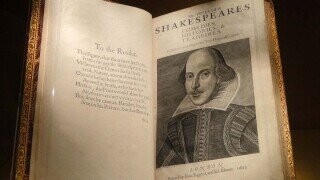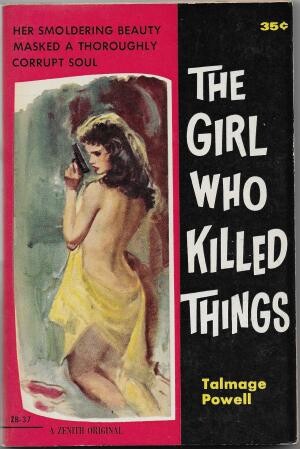Was Shakespeare The Father Of Modern True Crime?

Many famous writers will or will not tell you that before they hit it big and published that best-selling novel, they wrote all kinds of crap just to keep the lights on. Cheap literature and pulp dramas may not bring you fame and fortune, but they will allow you to make a quick buck because, honestly, it's not the hardest thing to write or sell. You just take a simple plot and make it super juicy because people go gaga for the juice. A lonely woman stuck in an unhappy marriage has a fling? Boring. A wife convinces her lover to kill her secret agent husband, and also the lover is her half-brother, and they're both from a planet called PsyBang? There's the juice.

But why go through all the trouble coming up with a fictitious story when you can just grab your juicy tale from the headlines? During the 16th century, the penny dropped for writers when they realized they've had all the money-making material at their disposal all along. At first, they only reported on capital crimes in the form of crime pamphlets: Short, unbound books of no more than 24 pages that described and most definitely embellished some of the time's current and horrific real-life murders. Ballads were soon written about these crimes and plastered all over small towns and cities, for what is real crime, if not told in rhythm or rhyme? Pray tell, for what it is, it surely won't sell!
Anyway and also sorry about that, these sensationalized true crime writings were gobbled up by the literate and artisan class of the time, and in 1592 a play called Arden of Faversham was published — one of the first modern adaptations of a real crime, or what they called "domestic tragedies" back then. The play retold the true story of a wife who conspired with her lover and was later convicted and burnt at the stake for the murder of her husband, Thomas Arden. Yes, England was well in the middle of its witch hunt trials back then, so a marital tale of betrayal, murder, and witchcraft was very much the zeitgeist and could also fit into any modern B-rated thriller today.
Don't Miss
But here's the mystery: Arden of Faversham was published anonymously, most probably by some writer(s) who wanted to make a quick buck and didn't want a schlocky and sensationalized work ruining their careers down the line. After centuries of analyses, scholars weighing in, and even computers running linguistic tests, the author of this play is believed to be one William Shakespeare. If not him alone, then possibly a collaboration between him and his theater pals Thomas Kyd and Christopher Marlowe.
Linguistic testing aside — although it's a pretty big one because the Bard does have a distinct use of language, after all — there is other evidence suggesting that Shakespeare was behind the first true crime adaptation. For one, the crime story of Arden was written in Holinshed's Chronicles, the same work of historical records that Shakespeare used as research for his plays, Richard III and Macbeth. And the one that'll surely raise an eyebrow or two is the fact that whoever wrote the play not only turned the two killers-for-hire into comical, fumbling fools straight out of a Coen Brothers movie, but the writer also renamed them "Black Will and Shakebag."
Sure, this could simply have been Shakespeare's pals sticking their tongues out at him through a play about a real-life murder, but here's the final kicker: The play contains an eerily familiar scene, and possibly a try-out for things to come, about a woman in distress over a dastardly damn bloodstain.
Macbeth would only be published in 1606 -- 14 years later.
Zanandi is on Twitter and wrote a comic for Trailer Park Boys that you can order here.